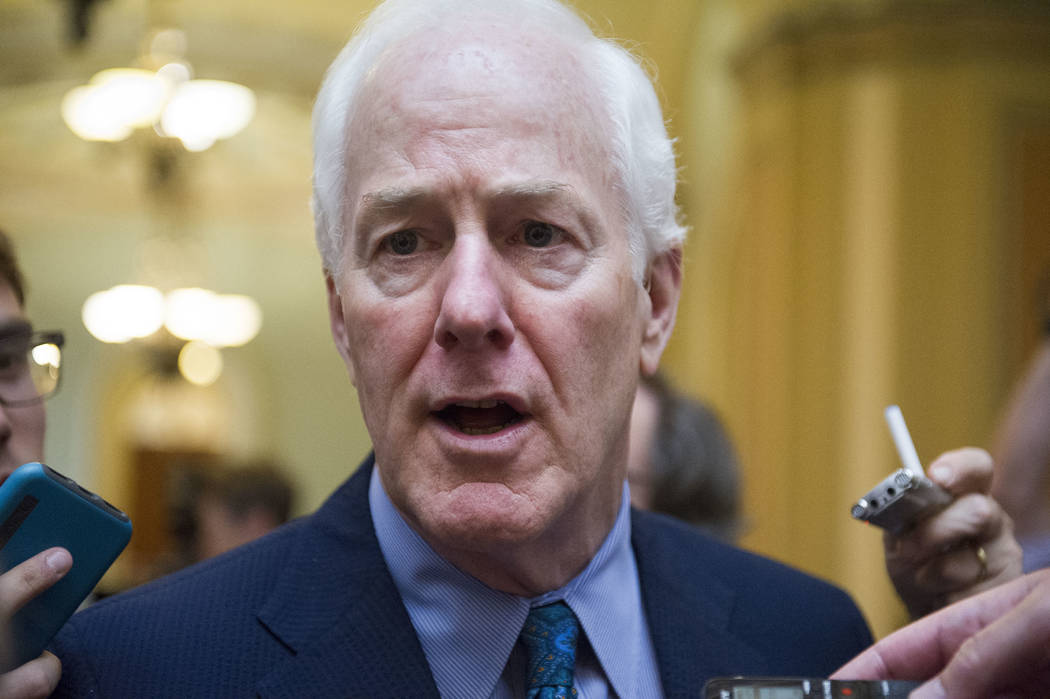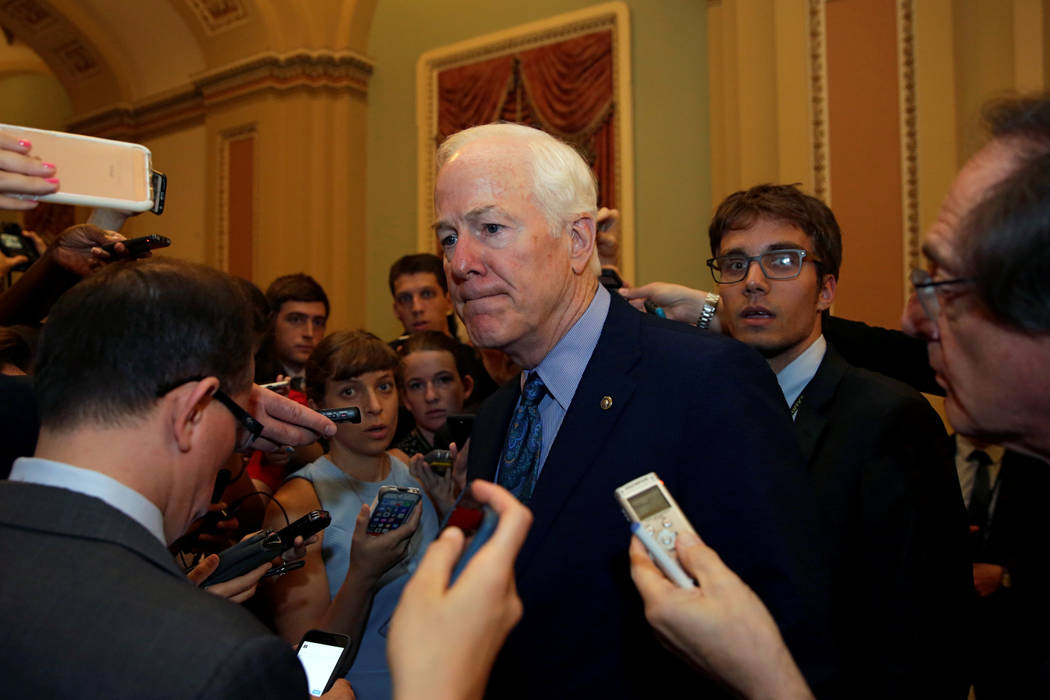Opposition mounts to Senate GOP’s ‘skinny’ Obamacare repeal
WASHINGTON — Just hours after text of the legislation was revealed, the Senate early Friday killed a bare-bones repeal of the Affordable Care Act that would eliminate personal and employer mandates under Obamacare.
Vice President Mike Pence was brought to the Capitol to cast a tie-breaking vote, if needed.
But the bill was defeated when Sens. John McCain of Arizona, Susan Collins of Maine and Lisa Murkowski of Alaska voted against the legislation.
“This is a disappointing moment,” said Senate Majority Leader Mitch McConnell, R-Ky. “A disappointment indeed.”
The Senate “skinny” bill repeal was modified after a broader repeal and a Senate health care replacement plan failed to get the votes for passage.
“It’s not perfect, but it’s better than that status quo,” said Sen. John Cornyn, R-Texas, the Senate majority whip, just minutes before the vote.
Senate Minority Leader Charles Schumer, D-N.Y., said the process eroded Senate traditions and having only two hours to debate left little time for lawmakers to fully understand the legislation.
“Let’s start over,” Schumer said. “It’s not too late to turn back.”
Cornyn earlier said he was told that members of the House see the Senate’s “skinny” bill “as a vehicle to go to conference.”
But four lawmakers warned late Thursday that they would vote against the “skinny” bill if they did not receive assurances that the House would conference the two bills — worrying aloud that House GOP leaders would pass the Senate bill as is and send it straight to the president.
McCain and Sens. Lindsey Graham, R-S.C., Ron Johnson, R-Wis., and Bill Cassidy, R-La., said they wanted assurance of a conference committee before the vote.
Graham said he was working on an amendment with Cassidy and Sen. Dean Heller, R-Nev., that would take a block grant approach to federal funds for states and give them flexibility to spend those funds.
But without a conference committee, Graham said there would be little time to get the amendment analyzed by the Congressional Budget Office and have it considered.
Graham said the “skinny” bill was not a repeal of Obamacare and failed to address health care needs in states.
“The skinny bill doesn’t work for any state,” Graham said.
‘Nobody knows’
By early evening, rank-and-file Republicans in the Senate remained uncertain what the final bill would look like. Leaders have discussed eliminating the Obamacare mandate that people purchase insurance, and drop mandates on employers offering plans.
“Right now, nobody knows,” said Sen. John Kennedy, R-La.
The Senate continued debate through Thursday night, before taking up a “vote-a-rama” on numerous amendments that will shape the final bill.
Schumer said Democrats would not file amendments until they see a draft of the “skinny” repeal bill from GOP leaders. Schumer warned that if it passed, Democrats would then offer numerous amendments to address concerns.
Sen. Catherine Cortez Masto, D-Nev., filed an amendment that would strip out all language from the bill that proposed Medicaid cuts.
“This amendment will protect our most vulnerable from callous attempts to take away their health care,” Cortez Masto said.
Nevada Gov. Brian Sandoval and Ohio Gov. John Kasich, both Republicans, were joined by a group of bipartisan governors in urging the Senate to reject the “skinny” bill.
Nevada and Ohio were two of 31 states and the District of Columbia that expanded Medicaid under the ACA. The expansion provided coverage for 11 million Americans, including more than 200,000 Nevadans, according to the Kaiser Family Foundation.
Heller was open to ‘skinny’ bill
Heller said he would be open to a “skinny” bill that eliminates Obamacare mandates and taxes, but he has been opposed to cuts in Medicaid and coverage for those who gained insurance under the expansion.
Heller also opposed the first version of the Senate health-care bill, joining other Republicans from Medicaid expansion states in opposition due to the Medicaid cuts in the bill.
Heller dashed past reporters following a caucus lunch Thursday on the way to a vote on an amendment that would create a single-payer health care system, introduced by Sen. Bernie Sanders, I-Vt. It failed.
Meanwhile, House GOP leaders told lawmakers the August recess could be postponed if the Senate passes a health care repeal bill.
That would allow both chambers to conference and create a final bill that could pass and deliver on promises to repeal Obamacare, no matter how narrowly.
Or the House could vote on a Senate bill and send it to Trump, giving him his first legislative victory.
Rep. Jacky Rosen, D-Nev., called the approach by GOP leaders reckless, and one that would hurt thousands of Nevadans.
“If it becomes law, this repeal legislation will increase your annual premiums by hundreds of dollars, driving health care costs up for women, older and disabled Americans, and people with pre-existing conditions already terrified of losing affordable coverage,” Rosen said.
The seniors’ lobby, AARP, also urged senators to reject the bill and seek a bipartisan solution to lower health care costs and protect and strengthen coverage millions rely on.
America’s Health Insurance Plans, the lobby for insurance companies, told Senate leaders that eliminating the Obamacare mandate that individuals buy insurance, without strengthening the markets, would cause costs to rise and eliminate choices for consumers.
Note: An earlier version incorrectly identified Sen. Chuck Schumer as majority leader.
Contact Gary Martin at 202-662-7390 or gmartin@reviewjournal.com. Follow @garymartindc on Twitter.































